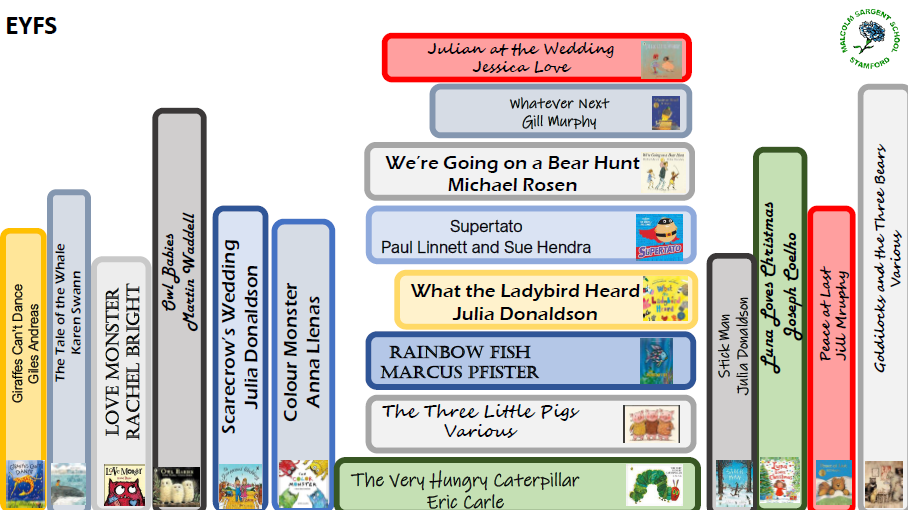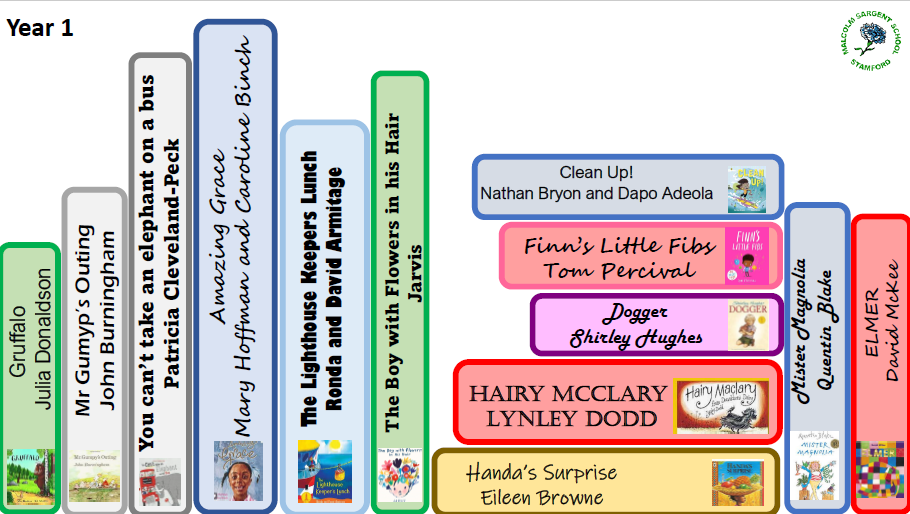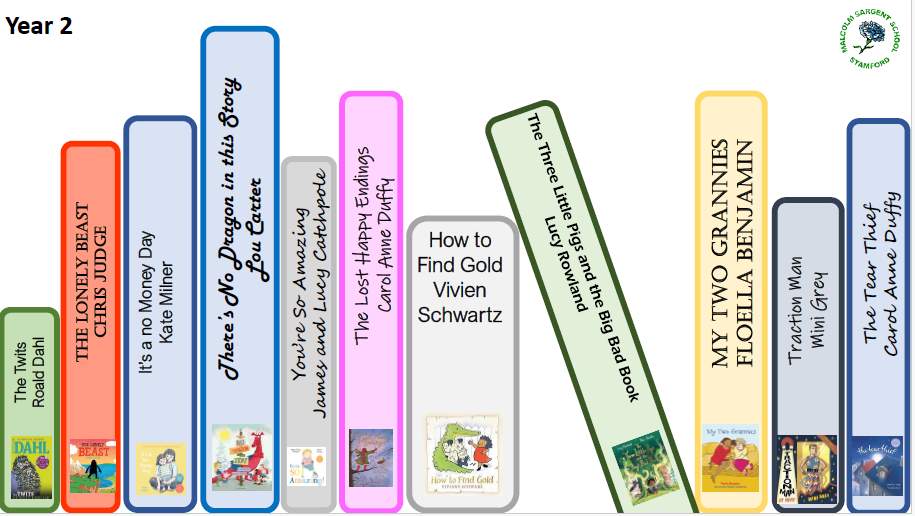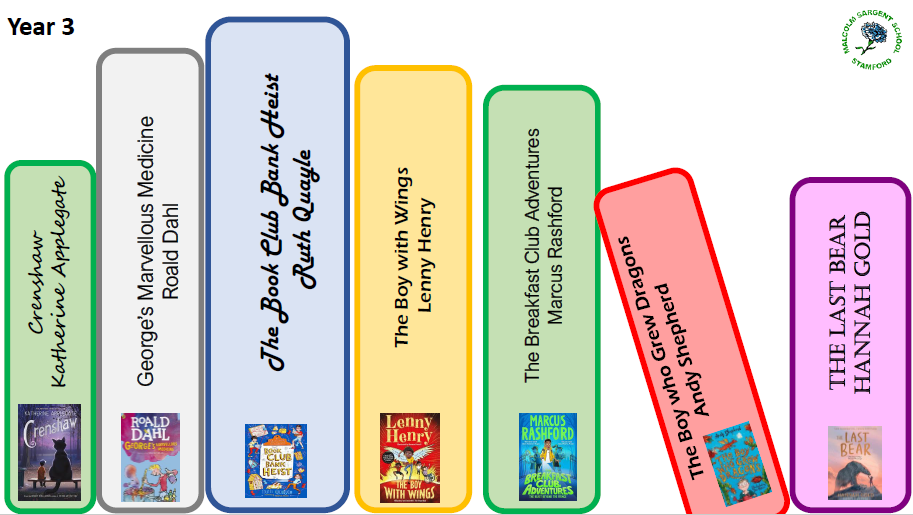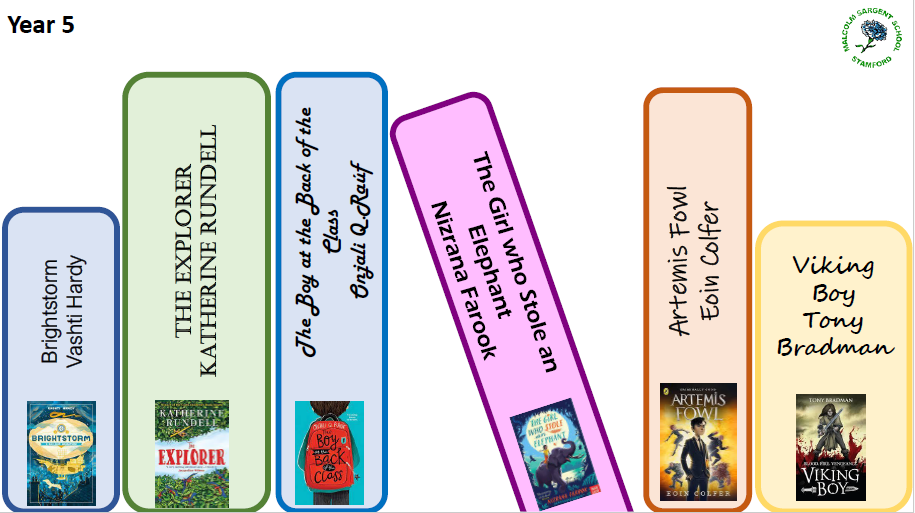
Reading
READING AT MALCOLM SARGENT PRIMARY SCHOOL
“You can find magic wherever you look. Sit back and relax, all you need is a book!” Dr. Seuss
“Reading is the gateway for children that makes all other learning possible.”
Barack Obama
Here at Malcolm Sargent Primary School, we believe that reading is a gateway to accessing the curriculum and the world around you with confidence and enjoyment.
Reading and the teaching of reading is at the heart of our curriculum. To foster a love of reading, we develop our students' fluency, word recognition and language comprehension through engaging and high-quality texts. As Scarborough's Reading Rope (pictured below) explains, all strands are interconnected and equally important.
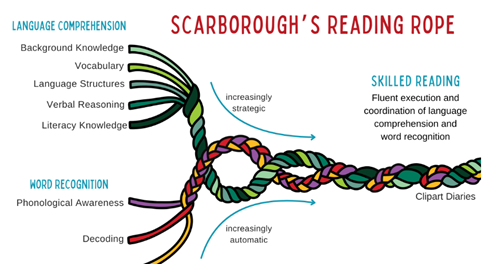
Intent
Our English curriculum is based around Early Years Framework followed by the National Curriculum.
Reading National Curriculum Programme of Study
The programmes of study for reading at key stages 1 and 2 consist of 2 dimensions:
- Word reading
- Comprehension (both listening and reading)
It is essential that teaching focuses on developing pupils’ competence in both dimensions and different kinds of teaching are needed for each.
Phonics
Phonics involves the teaching of spoken language and the letters and groups of letters which represent those sounds in written language. This helps the children learn to decode and sound out new words. Phonics is especially important because it gives children the tools to tackle unfamiliar words. This is why phonics is emphasised in the early teaching of reading to beginners when they start school.
Please see the Early Reading tab to see how we implement phonic teaching at Malcolm Sargent Primary School.
Fluency
This is the ability to read smoothly, accurately and with expression. It is important for children to develop fluency to read with comprehension. Fluency also helps children read more quickly and with more confidence, which can make reading more enjoyable for them.
Vocabulary
Vocabulary refers to the words a person knows and understands. Children with a wide vocabulary are able to read more efficiently and with more understanding. This allows them to focus on the meaning of the text. The Million Word Gap (seen below) demonstrates just that. A child being read 3-5 times per week will be exposed to 169,520 words by the time they are 5 years old!

Comprehension
Good comprehension is the ability to understand and make meaning from what is read. It is our goal, and it requires the integration of all the other components of reading. We know that when children can comprehend what they are reading, they are able to fully understand and engage with the text which can lead to a deeper appreciation and enjoyment of reading.
We understand it is essential that, by the end of their primary education, all pupils can read fluently, and with confidence, in any subject in their forthcoming secondary education.

We believe that one of our most important duties when teaching children to read is to be ensure that they can:
- Read proficiently.
- Read with fluency.
- Read with understanding.
- Have a positive attitude to reading.
How is reading taught at Malcolm Sargent Primary School?
Our curriculum has a clear progression of knowledge and skills ensuring our students have every opportunity to be successful learners.
‘The Big Picture’
The children will experience reading in a range of different ways, such as reading by themselves, reading with a partner, reading as a whole class or listening to the adult model reading. Time is given over to explore any background knowledge which will enable the children to connect ideas and information within the text, the explicit knowledge will improve the effectiveness of their reading. Once the main idea is summaries and understood, the children ask questions to understand the wider context.
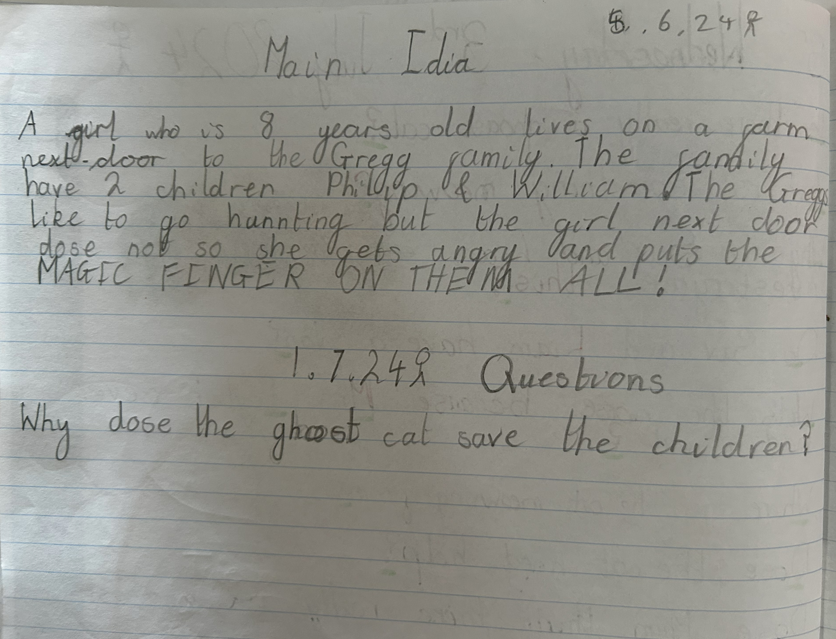
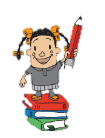
Reading Like a Detective
Children re-read the text and are then coached and encouraged to ‘read like detectives’ where they find the most pertinent sections of the text that are rich in information and give insights as a reader. A mind map is created to represent a summary of settings, characters or any other focus. The information is linked together to allow a conclusion to be drawn. A ‘big conclusion’ is then formed.
Y2 Mind Map
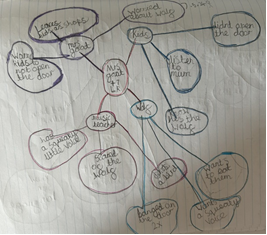

Y6 Mind Map
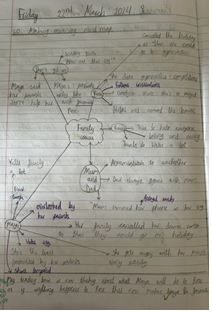

Demonstration Comprehension
Child re-read the text and work through comprehension questions which follows a format of ‘I do’, ‘We do’, and ‘They do’ format. The teachers model how to gather points and evidence and construct coherent comprehension answers. They then co-construct answers pulling out key vocabulary, information and evidence. The children answer the final question independently.
“VIPERS” supplements our reading scheme and is used as a method of ensuring that teachers ask, and that children are familiar with a range of questions. VIPERS stands for:
- Vocabulary
- Inference
- Prediction
- Explanation
- Retrieval
- Sequence and Summarise
Novel Study
Our Novel Study lessons are based on our class reader texts and the sessions aim to promote the love of reading. Texts are chosen carefully to ensure that we have coverage across a full range of genres, and themes within fiction and non-fiction. They fully represent the world we live in and our community. We ensure there is diversity across the text range.
During these sessions children have time to enjoy listening to a story as well as reading themselves. They then create posters linked to characters, re-telling the story using picture maps and/or with drama.
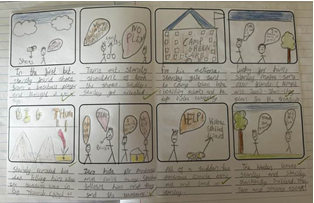
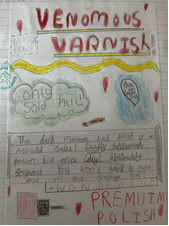
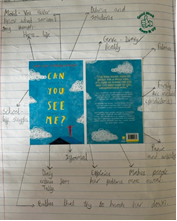
Accelerated Reader
When children have completed the RWI Scheme, they take a ‘STAR reader’ test which will in turn generate a ZPD (zone of proximal development) reading range for a child. This then signposts the children to which books they can access in our library. The ZPD range is unique to each child and is a measure of what they can read independently without the support of an adult, but which also provides sufficient challenge. Children can then take a quiz after they have read a book to assess their understanding of what they have just read.
There is a high profile around completing a book and successfully finishing a book review. When children read a certain amount, they are entered into a prize draw and have the chance of winning an Amazon voucher or a Kindle. The draw takes place three times per year.
Millionaires’ Reading Club
Mr Cox creates a leader board which records how many words a child has read. When they reach certain goals, they are given a millionaires’ pin badge with a new badge each badge each time they hit the next million!

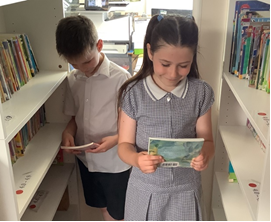
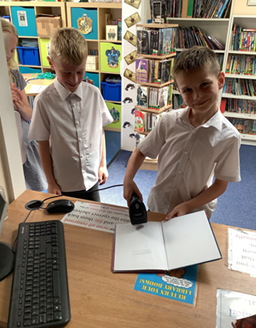
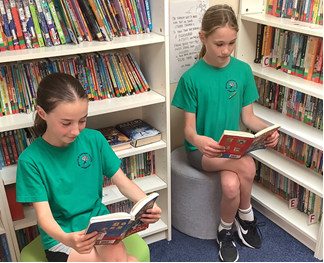
Children in the Millionaires’ Club automatically become our Reading Ambassadors and support children lower down the school at our ‘Book and Biscuit’ Club. At this club, they encourage a love of reading by sharing old favourites and modelling storyteller reading to hook and inspire our younger readers.
Book Spines
